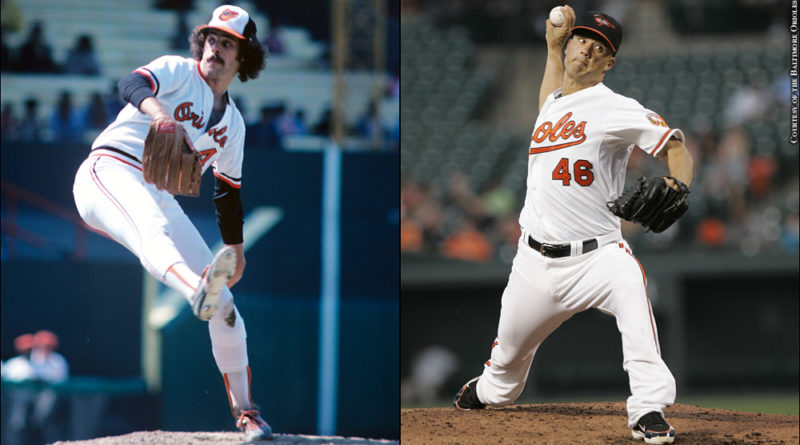Since Major League Baseball suspended operations March 12 due to the coronavirus pandemic, the biggest questions have been when the season will start and how the players will be paid. The league and the MLBPA agreed in late March that players would be prorated salaries based on games played.
That agreement, though, has been a flashpoint in negotiations during the last month. Proposals have gone back and forth between the two sides, with the owners wanting to further reduce pay and the players accusing them of bad-faith discussions and not adhering to the March agreement.
Discussions seemed at their most dire earlier this month when the owners and players stopped negotiating, fueling speculation of an abandoned season. Though there seems to be more optimism for an agreement now after commissioner Rob Manfred and union president Tony Clark met in Arizona June 16, what happens next is still unclear.
But for former Baltimore Orioles pitcher Ross Grimsley, one thing is certain: Baseball will not be what it once was. The game’s financial future is being brokered, while proposed changes such as a universal DH and expanded playoffs could go into effect this year.
“Even if there is baseball, I don’t think it’s going to be the kind of baseball we’re used to in the past,” Grimsley said on Glenn Clark Radio June 16.
Though the sport has enjoyed labor peace since 1995, tensions have been rising for years, helping contribute to the current stalemate. The current collective bargaining agreement expires after the 2021 season.
Despite record revenues for MLB, the percentage of that revenue going toward major- and minor-league players has decreased every year since 2015, including a decline of more than 2 percent in 2018, according to Forbes. Effectively, the owners continue to get richer while overall player salaries stagnate.
As such, the players see bending on pro rata as the start of a dangerous slippery slope that would ultimately give more power and wealth to the owners, an issue Grimsley noted has been around since he played in the 1970s.
“If you give something back, they’re going to keep taking, and that’s what they’re doing,” said Grimsley, a former MLBPA member during his playing days. “Don’t give back stuff that we fought for.”
This impasse has also caused significant frustration for fans. Squabbles about money and disagreements about how to bring baseball back have sown discontent among fans, as nearly every other professional sports league in the United States has implemented some sort of return-to-play protocol.
That the biggest disparity — how much money one side makes over the other — comes during a significant economic crisis has also caused a divide. For Jeremy Guthrie, a retired pitcher who was in the majors from 2004-2017 and with Baltimore from 2007-2011, that friction will ultimately hurt the sport.
“The common argument is it’s billionaires fighting with millionaires,” Guthrie said on GCR June 16. “That’s a really tough fight to gain public support on either side.”
Grimsley — who pitched in the majors from 1971-1982 and with the Orioles from 1974-1977 — believes this dispute will drive many longtime fans away from the game, which he mostly blames the owners. Guthrie, a MLBPA representative during his time in the league, also generally sides with the players, though was more guarded in his evaluation of the situation.
“The best is when you see the sides strive for a mutual understanding and recognize that this is all for a huge benefit to both sides and to the fans,” Guthrie said.
Though it may look grim right now, this week’s Manfred-Clark discussions could be a step in the right direction. MLB’s latest offer reportedly calls for full prorated pay for a 60-game season. The MLBPA reportedly proposed 70 games.
It’s still difficult to say whether or not the league and the players will eventually come to compromise, but both Grimsley and Guthrie are cautiously optimistic that it will get done and there will be baseball in 2020.
“You feel negative, but there’s something in the back that goes, ‘Hey you know what, they’re going to get this figured out somehow,” Grimsley said.
“There’s no reason for either of them not to do it,” Guthrie said.
For more from Grimsley, listen to the full interview here:
For more from Guthrie, listen to the full interview here:
Photo Credit: Courtesy of the Baltimore Orioles

